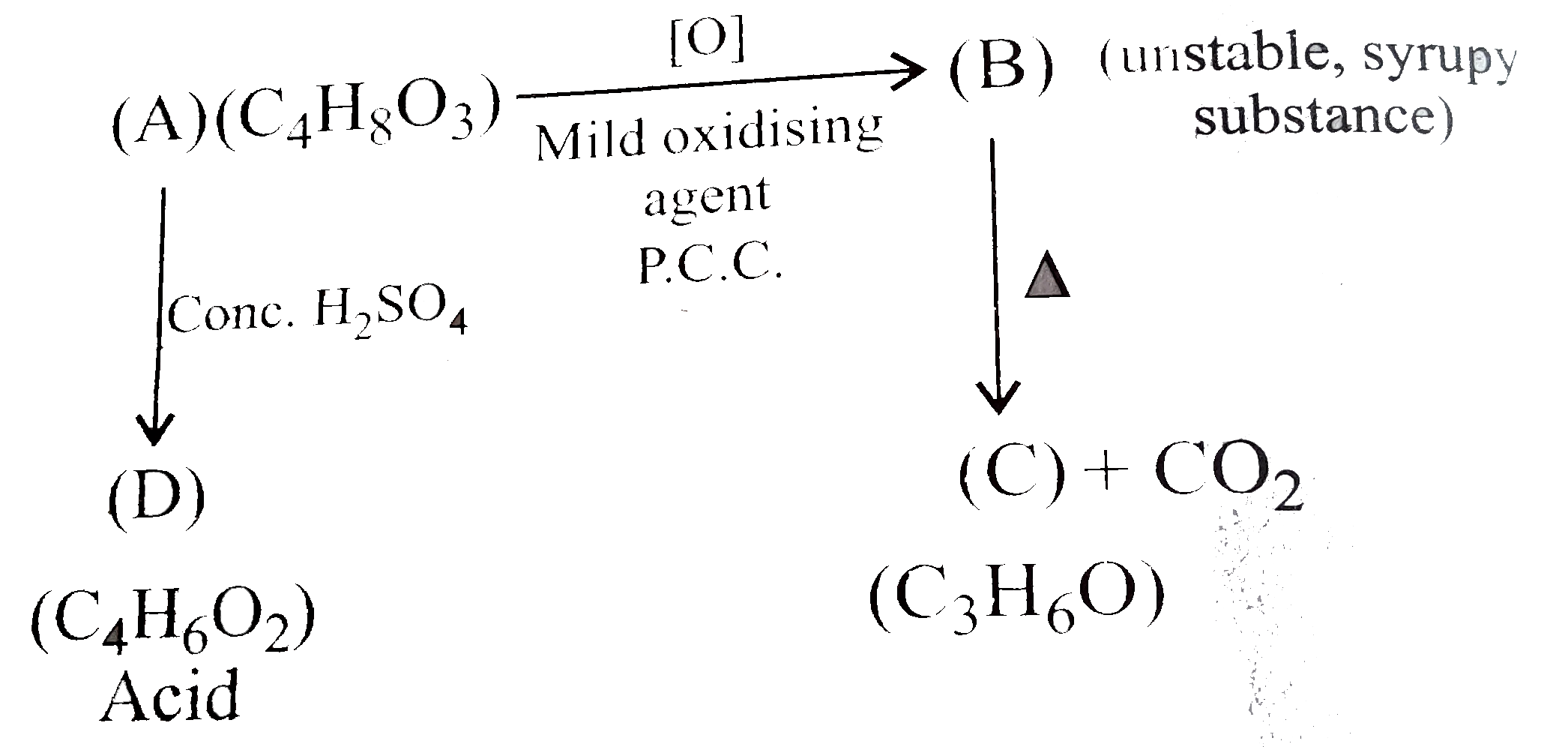
The compound (B) is:
a.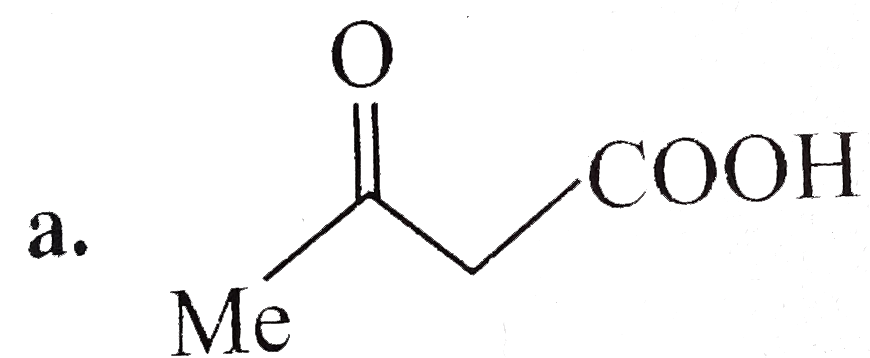
b.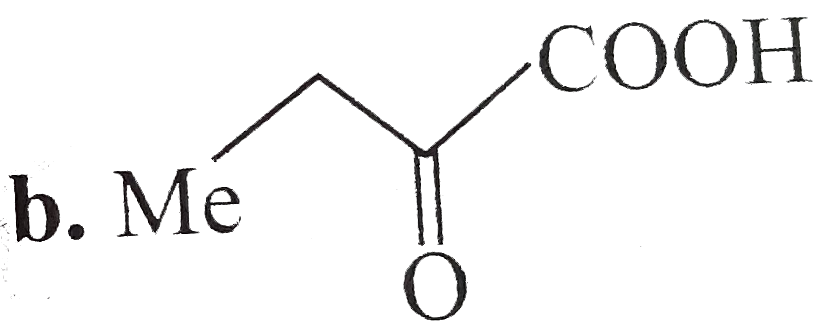
c.
d.
The correct Answer is:A
DU in A=(2nC+2)−nH2=(2×4+2)−82=1∘
(Due to (−COOH) group)
Compount (B) is unstable and losed CO2, it shows (B) must contain beta-keto acid, which account for three oxygen atoms in (A) and (B).
(A) must contain beta-hydroxy acid which on oxidation with PCC gives (B) (β−keto acid).
Therefore, structure of (A)⇒
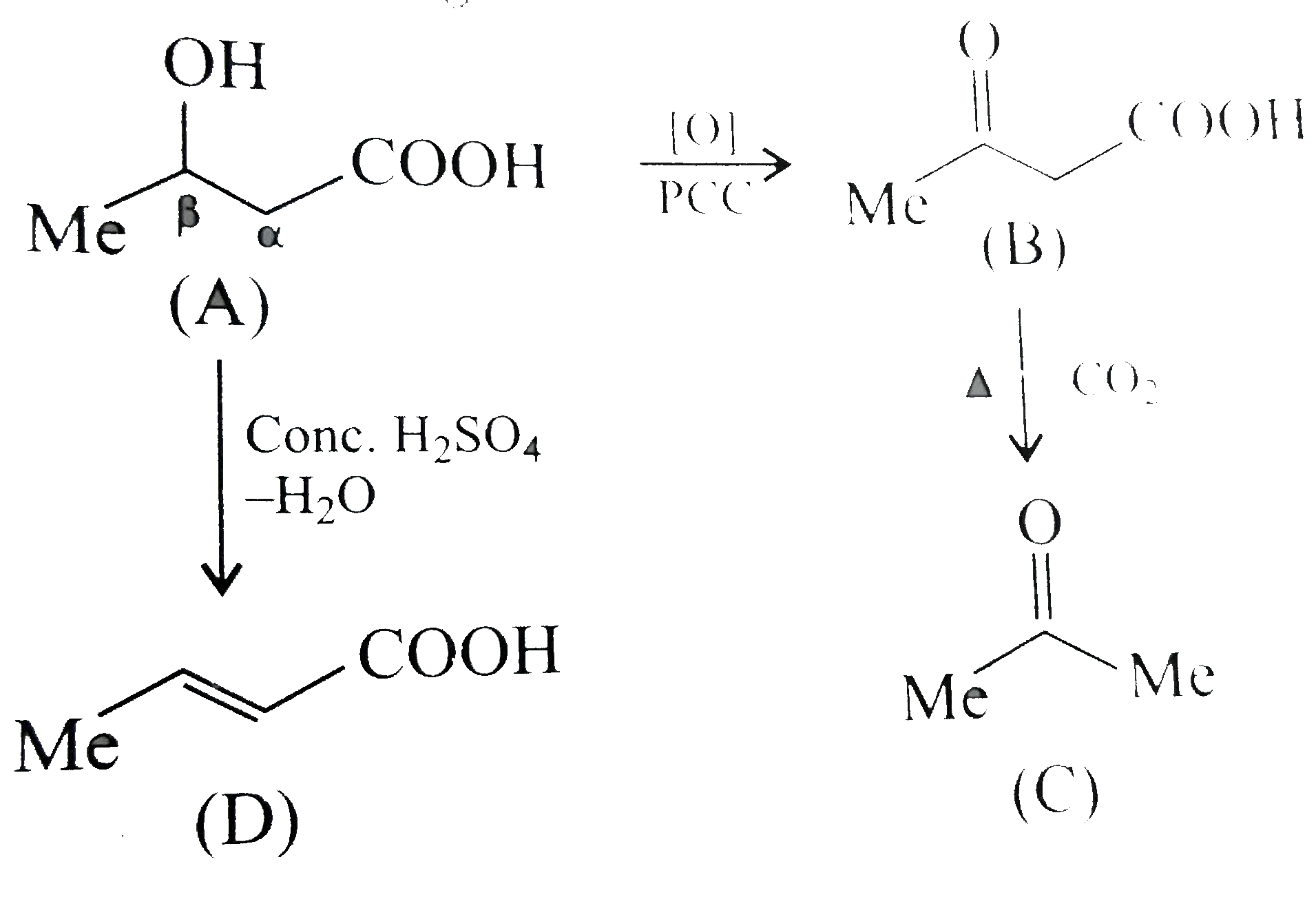
Conversion of MeCHO to MeCOMe (Acetone):
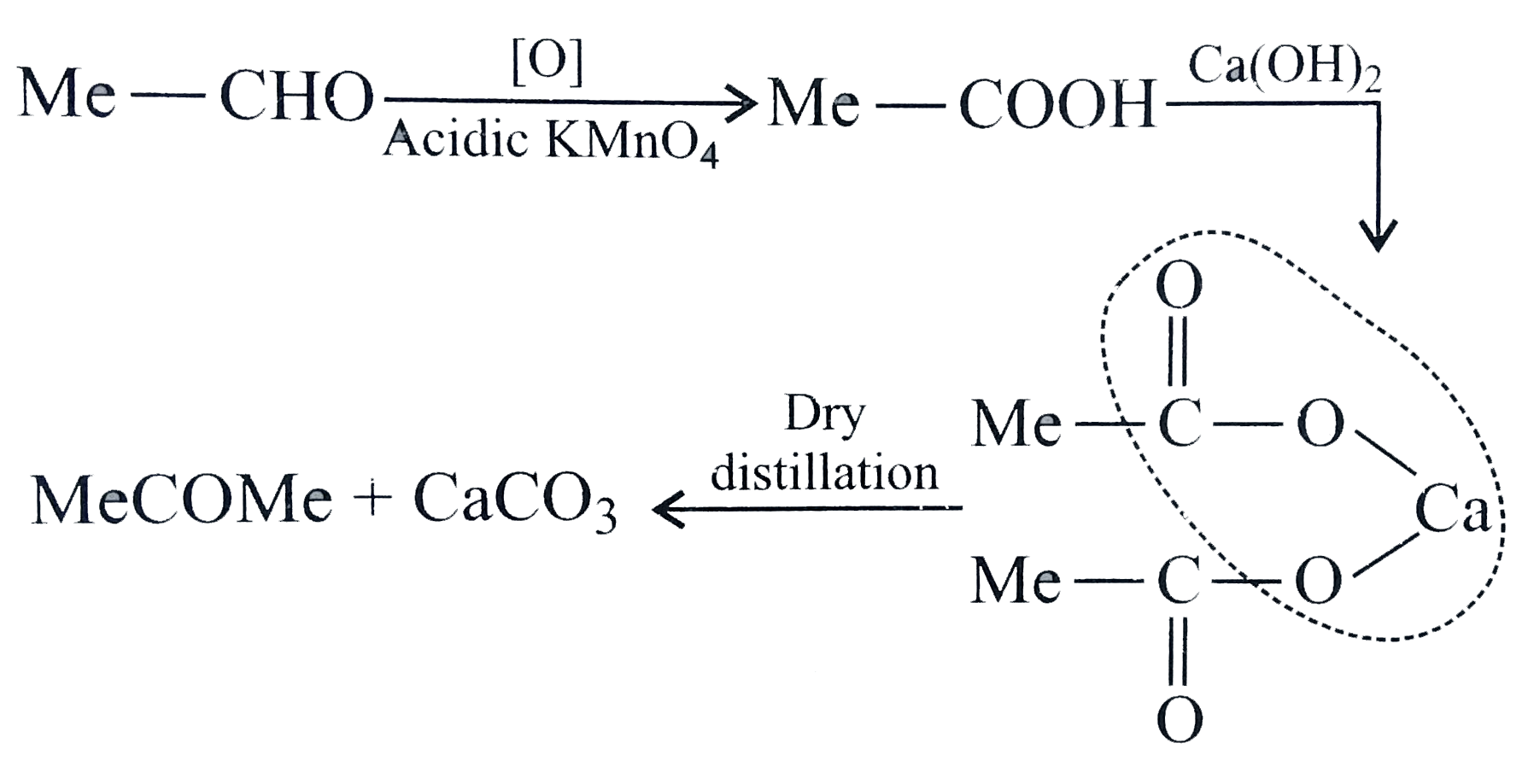
Topper's Solved these Questions
- REDUCTION AND OXIDATION REACTION OF ORGANIC COMPOUNDSBOOK - CENGAGE CHEMISTRY ENGLISHCHAPTER - REDUCTION AND OXIDATION REACTION OF ORGANIC COMPOUNDSEXERCISE - Exercise (Multiple Correct)
35 Videos
- REDUCTION AND OXIDATION REACTION OF ORGANIC COMPOUNDSBOOK - CENGAGE CHEMISTRY ENGLISHCHAPTER - REDUCTION AND OXIDATION REACTION OF ORGANIC COMPOUNDSEXERCISE - Exercise (Single Correct)
90 Videos
- REDUCTION AND OXIDATION REACTION OF ORGANIC COMPOUNDSBOOK - CENGAGE CHEMISTRY ENGLISHCHAPTER - REDUCTION AND OXIDATION REACTION OF ORGANIC COMPOUNDSEXERCISE - EXERCISES
1 Videos
- QUALITATIVE INORGANIC SALT ANALYSISBOOK - CENGAGE CHEMISTRY ENGLISHCHAPTER - QUALITATIVE INORGANIC SALT ANALYSISEXERCISE - Viva Voce Questions And Part-C (Analysis Of Cations)
42 Videos
- SOLID STATEBOOK - CENGAGE CHEMISTRY ENGLISHCHAPTER - SOLID STATEEXERCISE - Ex 1.2 (Objective)
9 Videos
Similar Questions
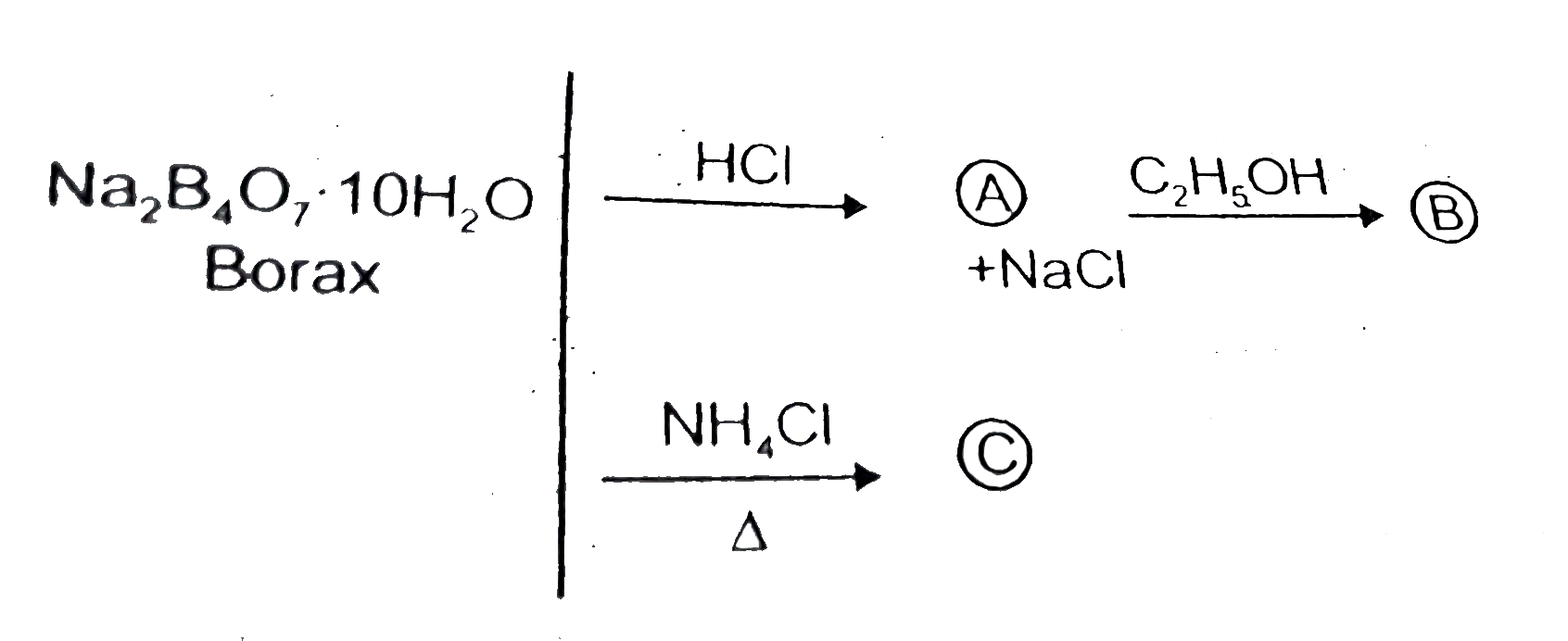
Q. Hybridization of B in compound (B) is
View SolutionThe compound (A) in the previous question is further hydrolysed in dilute acidic medium to give compounds (B) and (C). The compounds (B) and (C) are :
View SolutionA compound (A) is formed by the reaction of ethylene with bromine which on reacting with aqueous KOH gives a compound (B). The compound (B) can also be prepared by the reaction of ethylene with the following:
View SolutionIf the optical rotation produced by the compound (A) is +52∘, the one produced by compound (B) is :
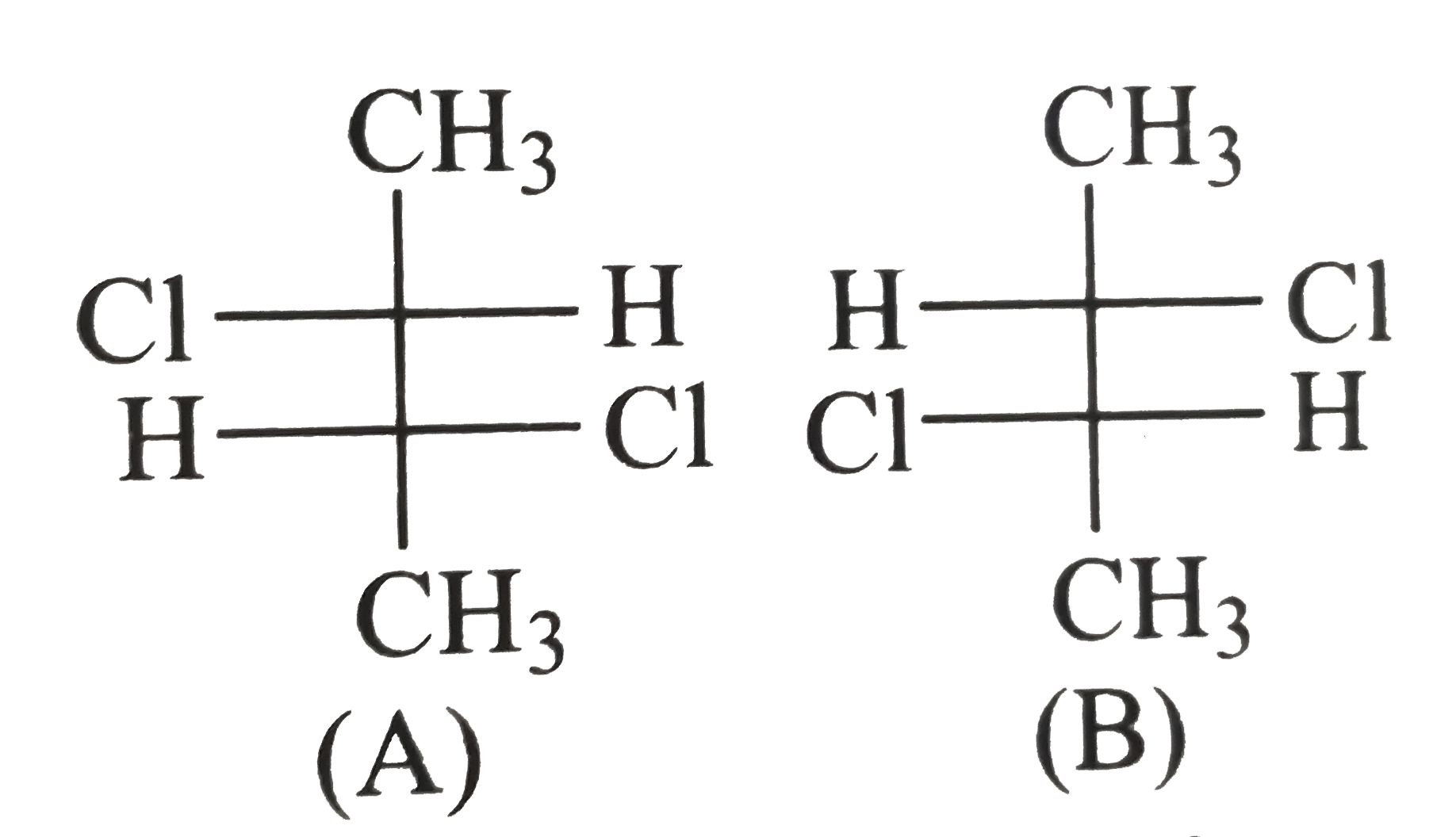
View SolutionAn alkali metal A gives a compound B (molecular mass = 40) on reacting with water. The compound B gives a soluble compound C on treatment with aluminium oxide. Identify A, B and C and give the reactions involved.
View Solution
The compound (B) and (C ), respectively, are:
View Solution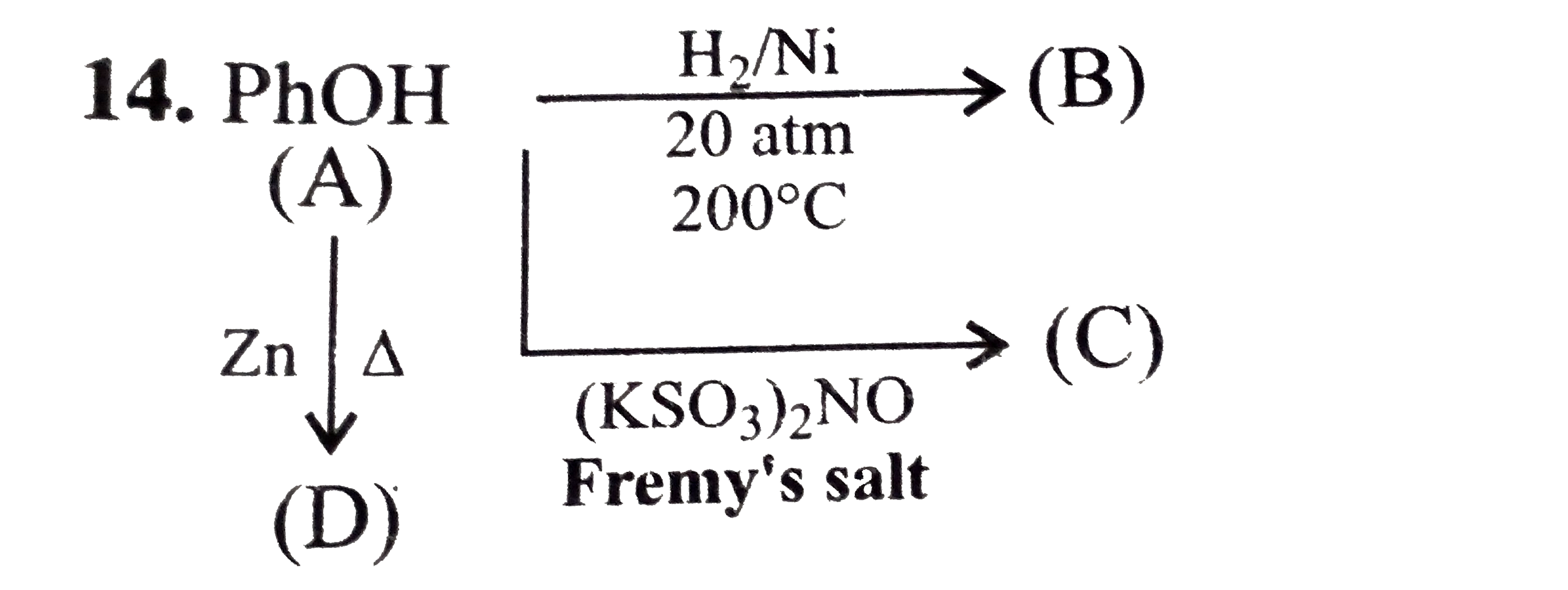
The compounds (B), (C ), (D), respectively are:
View SolutionCompound 'A' of molecular formula C4H10O on treatment with Lucas reagent at room temperature gives compound 'B'. When compound 'B' is heated with alcoholic KOH, it gives isobutene. Compound 'A' and 'B' are respectively :
View Solution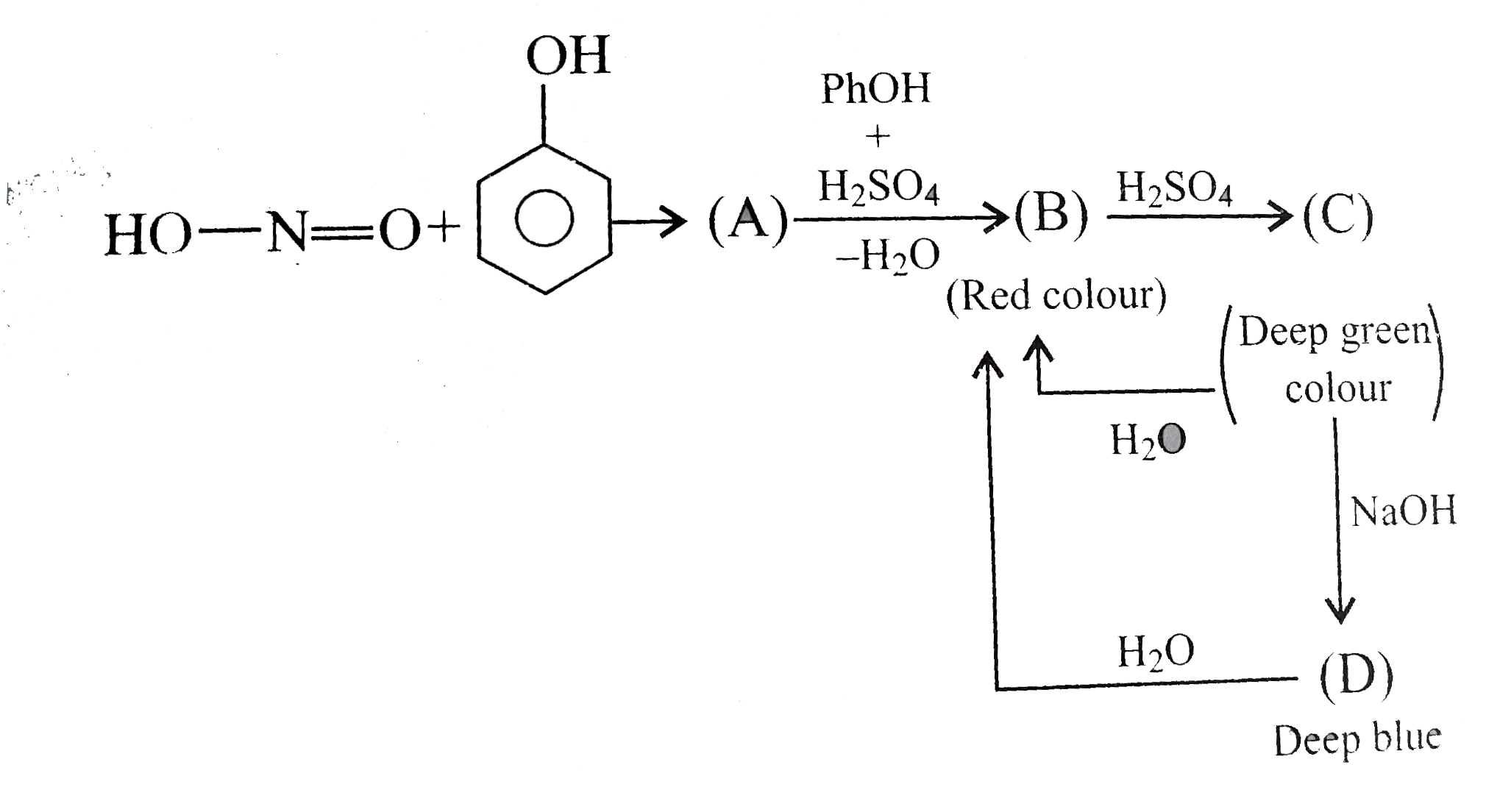
The red colour of compound (B) is due to the formation of:
View SolutionParagraph for problems 9−15
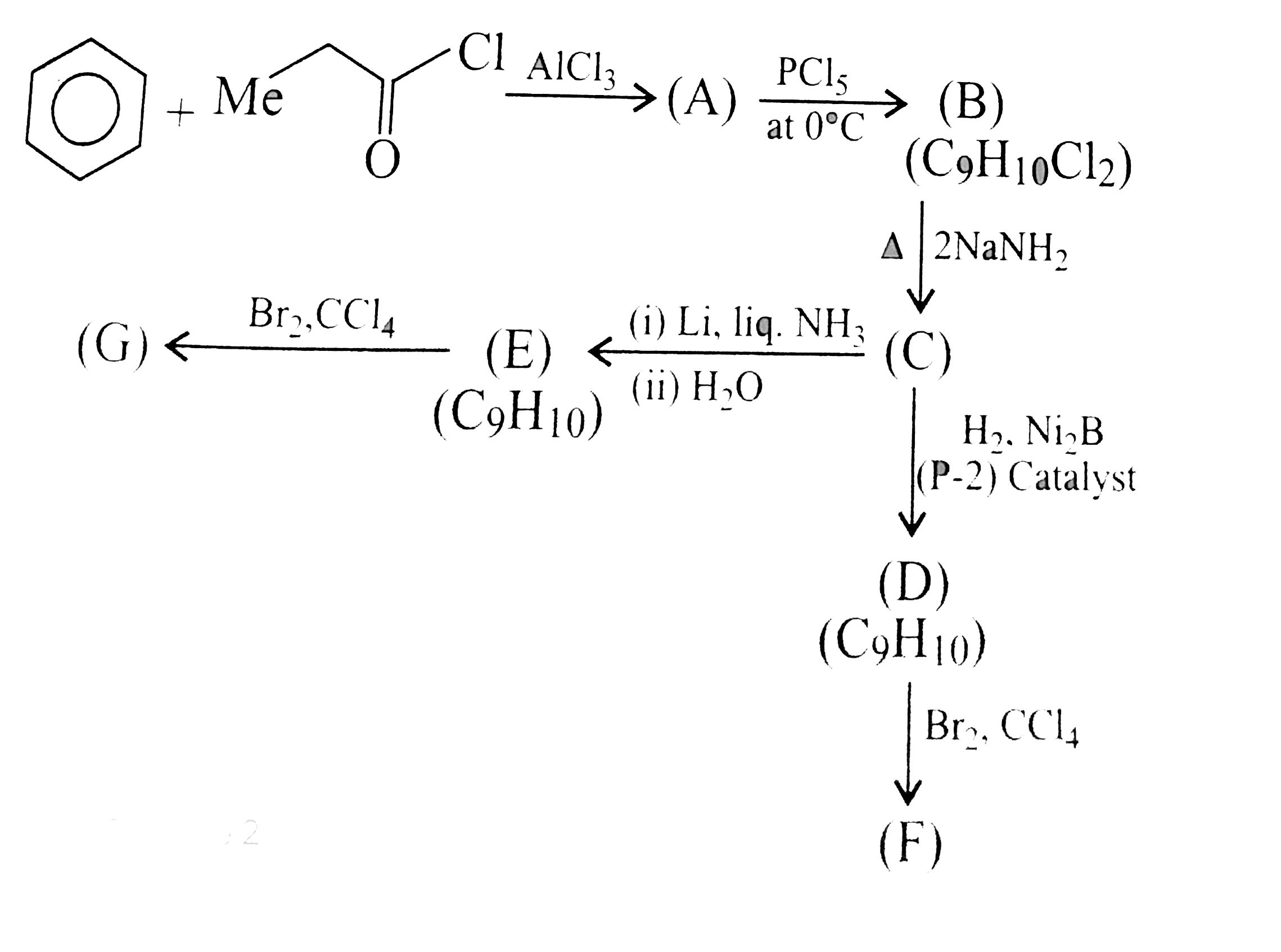
Compound (B) is:
View Solution
